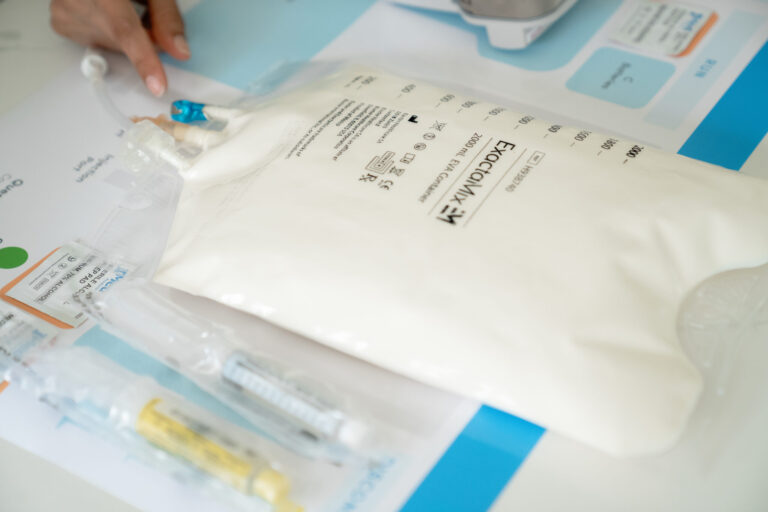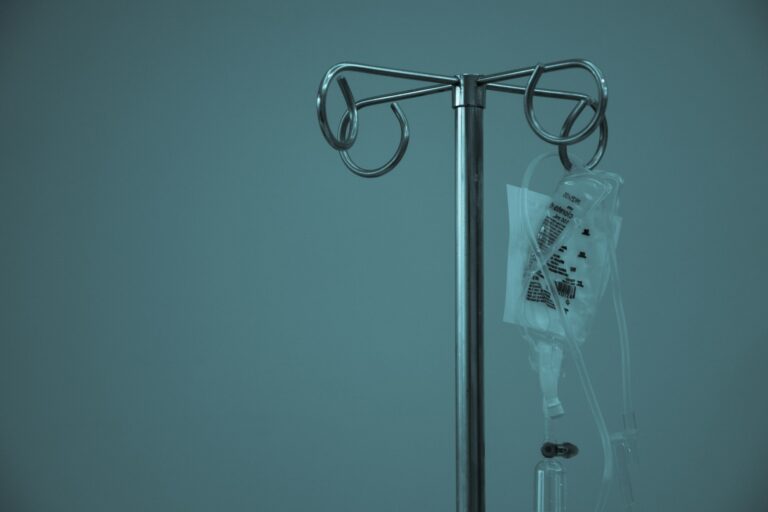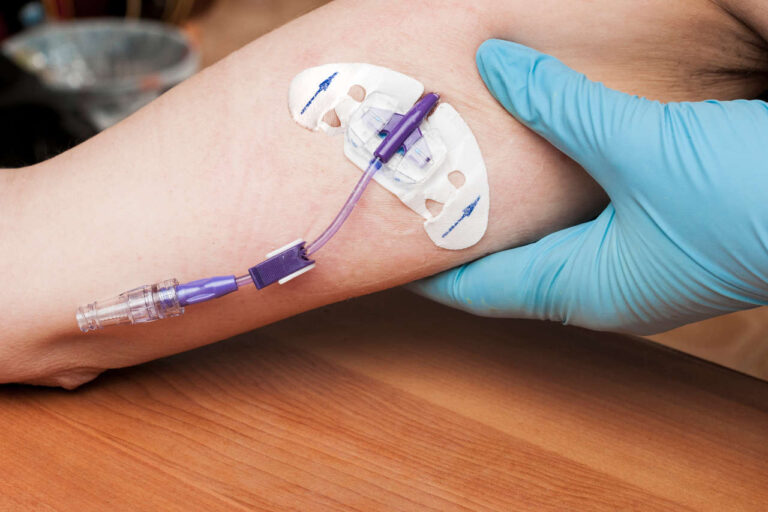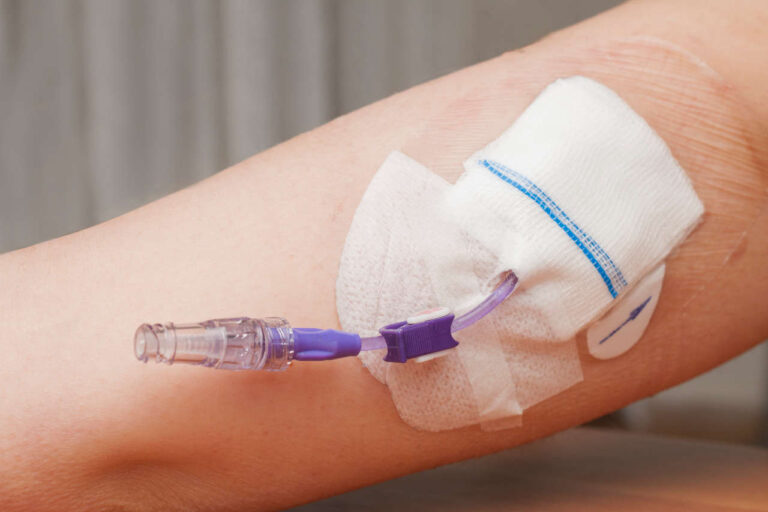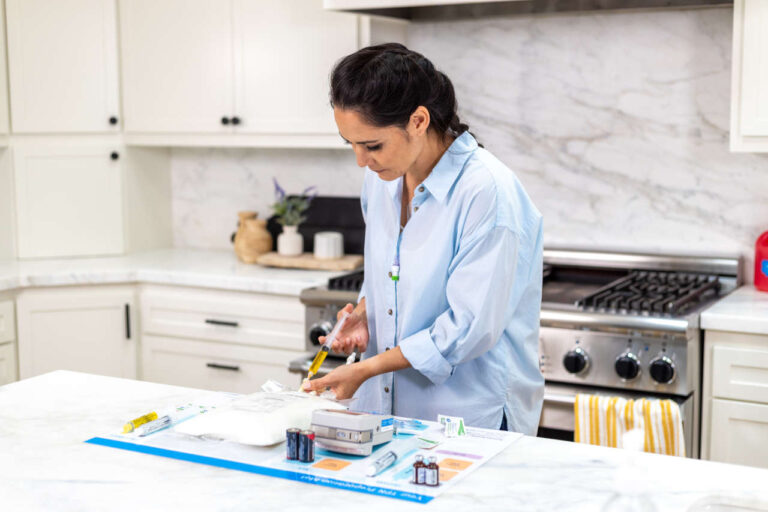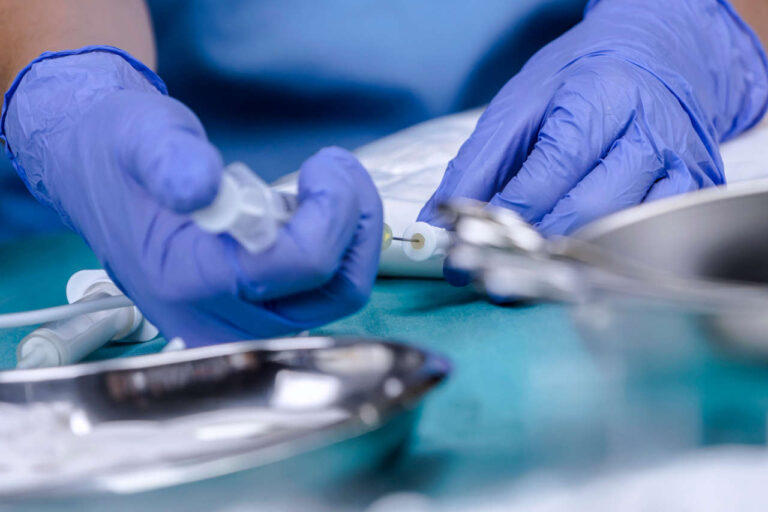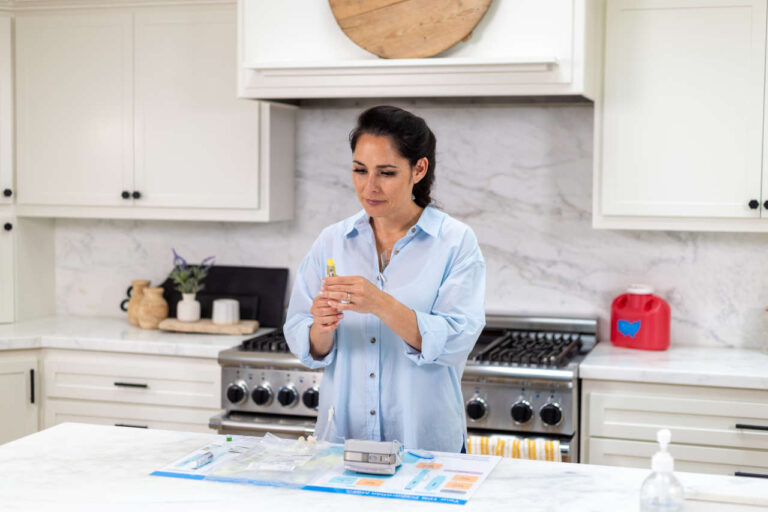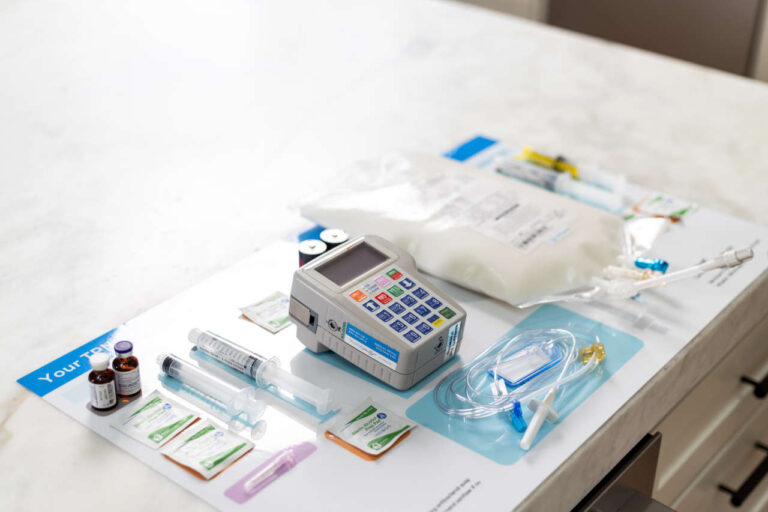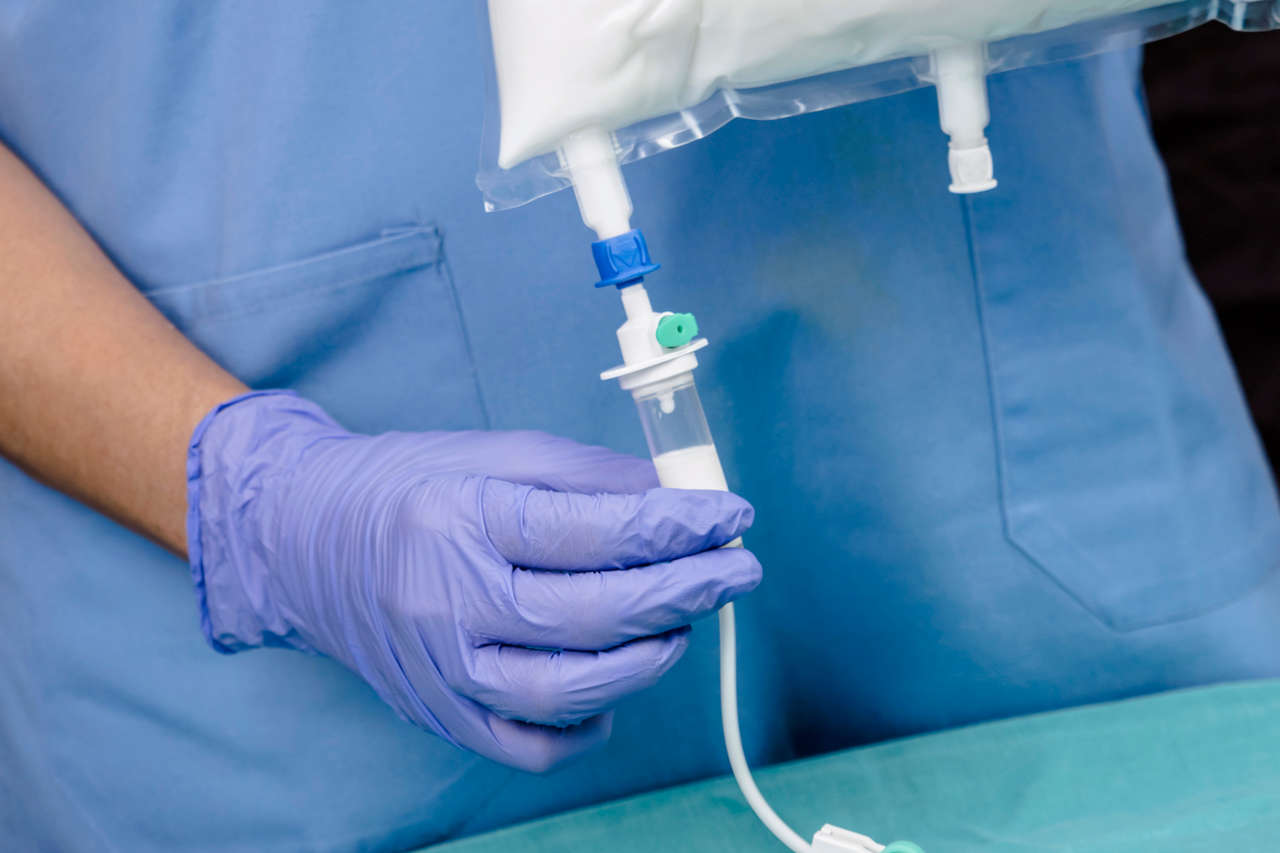
Nếu bạn hoặc người thân của bạn yêu cầu dinh dưỡng qua đường tĩnh mạch hoàn toàn (TPN), việc hiểu rõ các thành phần thiết yếu của liệu pháp dinh dưỡng này là rất quan trọng. Dung dịch TPN chứa hỗn hợp cân bằng các chất dinh dưỡng đa lượng (như carbohydrate, nhũ tương lipid và protein) và các chất dinh dưỡng vi lượng (như vitamin, khoáng chất, nguyên tố vi lượng và chất điện giải). Những chất dinh dưỡng này rất cần thiết cho sự tăng trưởng, phát triển, hoạt động trao đổi chất và sức khỏe tổng thể.
Dịch truyền tĩnh mạch của bạn, luôn có sẵn
Hàng tồn kho đầy đủ, truy cập dễ dàngCác giải pháp TPN được các bác sĩ lâm sàng xây dựng cẩn thận sau khi tham khảo ý kiến của chuyên gia dinh dưỡng để đáp ứng nhu cầu dinh dưỡng và trao đổi chất hàng ngày của bạn, đồng thời hỗ trợ sức khỏe tổng thể và quá trình phục hồi của bạn.
Trong bài viết này, chúng tôi đã giải thích các thành phần chính của dung dịch TPN, lý do tại sao các chất dinh dưỡng này rất cần thiết và cách chúng hỗ trợ sức khỏe của mỗi cá nhân.
Thành phần của dung dịch TPN
Lượng và thành phần của dung dịch TPN có thể thay đổi tùy theo từng bệnh nhân, tùy thuộc vào nhu cầu năng lượng, độ tuổi, cân nặng, tình trạng dịch, cân bằng điện giải và tiền sử bệnh. Một túi dung dịch TPN tiêu chuẩn chứa khoảng 1 đến 2 lít dung dịch với các tỷ lệ khác nhau của các chất dinh dưỡng đa lượng, vi lượng, nước, chất điện giải và các chất phụ gia như thuốc.
Nước
Nước là thành phần thiết yếu của dung dịch TPN vì nó đóng vai trò là nền tảng để pha trộn các chất dinh dưỡng đa lượng, vi lượng và nguyên tố vi lượng khác nhau. Về cơ bản, nước cung cấp môi trường để đưa các chất dinh dưỡng thiết yếu trực tiếp vào máu của bệnh nhân.
Nước được sử dụng trong các giải pháp TPN thường là nước vô trùng để tiêm (SWFI) hoặc nước tiêm kìm khuẩn (BWFI), đảm bảo dung dịch không chứa tạp chất. Lượng nước thêm vào dung dịch TPN phụ thuộc vào nhu cầu dịch của bệnh nhân, được xác định dựa trên các yếu tố như tuổi, cân nặng, tình trạng sức khỏe và nhu cầu cân bằng dịch.
Thông thường, hàm lượng nước trong dung dịch TPN dao động từ 70% đến 85% trên tổng thể tích.
Các chất dinh dưỡng đa lượng trong dung dịch TPN
Các chất dinh dưỡng đa lượng là thành phần chính của dung dịch TPN và bao gồm carbohydrate, protein và chất béo.
Carbohydrate
Carbohydrate chính được sử dụng trong dung dịch TPN là dextrose monohydrate, một dạng glucose. Glucose là nguồn năng lượng thiết yếu cho cơ thể và được sử dụng trong hầu hết mọi hoạt động của tế bào. Thông thường, 60% – 70% calo TPN cung cấp cho cơ thể bạn đến từ dextrose.
Trong túi TPN, dung dịch chuẩn chứa tới 20 đến 25% dextrose, nhưng cũng có thể có nhiều nồng độ khác nhau, từ 40 đến 70%, tùy thuộc vào nhu cầu năng lượng của bệnh nhân.
Nhu cầu carbohydrate tối đa cho người lớn là 500 gram mỗi ngày và nồng độ carbohydrate cao thường dẫn đến tăng đường huyết và tăng triglyceride máu.
Protein
Axit amin là thành phần cấu tạo nên protein và đóng vai trò quan trọng trong việc sửa chữa mô, chức năng miễn dịch và sản xuất enzyme. Dung dịch TPN chứa hỗn hợp các axit amin thiết yếu và không thiết yếu ngoại trừ arginine và glutamine. Nồng độ và thành phần của axit amin có thể dao động từ hàm lượng axit amin 2% đến 15% trong dung dịch.
Nhu cầu tối đa hàng ngày của người trưởng thành khỏe mạnh là 0,8 đến 1 gam protein/kg.
Nồng độ axit amin được điều chỉnh dựa trên nhu cầu cụ thể, cân nặng và tình trạng sức khỏe của bệnh nhân. Ví dụ, nếu bệnh nhân bị bệnh nặng, cần hạn chế protein tạm thời hoặc bị suy thận mãn tính, thì Liều lượng protein được cung cấp là 0,6 đến 0,8 gam/kg/ngày. Trong trường hợp chạy thận nhân tạo, liều lượng protein được cung cấp là 1,2 đến 1,3 gam/kg mỗi ngày.
Chất béo
Chất béo dưới dạng nhũ tương lipid được sử dụng để ngăn ngừa tình trạng thiếu hụt các axit béo thiết yếu như axit béo omega-3 và axit béo omega-6. Nhũ tương lipid thường được làm từ dầu đậu nành hoặc dầu cây rum, rất cần thiết cho cấu trúc tế bào, sản xuất hormone và hấp thụ vitamin.
Tiêu biểu, 25% đến 40% của TPN Lượng calo đến từ chất béo. Nhu cầu hàng ngày thông thường của người trưởng thành khỏe mạnh là 1 đến 2 gam/kg/ngày, và liều tối đa không được vượt quá 2,5 gam/kg/ngày.
Các vi chất dinh dưỡng trong dung dịch TPN
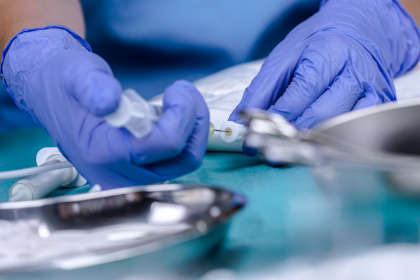
Các dung dịch TPN cũng bao gồm một loạt các vi chất dinh dưỡng cần thiết với số lượng nhỏ cho nhiều chức năng sinh lý khác nhau.
Vitamin
Dung dịch TPN chứa hỗn hợp toàn diện các vitamin tan trong nước và tan trong dầu, bao gồm vitamin C, vitamin nhóm B, vitamin K và vitamin E. Dung dịch TPN thường có màu vàng do được bổ sung thêm multivitamin. Các vitamin này rất cần thiết cho quá trình chuyển hóa tế bào, chống oxy hóa, đông máu và các quá trình quan trọng khác.
Nồng độ hoặc liều lượng vitamin trong dung dịch TPN được điều chỉnh theo nhu cầu khuyến nghị hàng ngày.
Nói chuyện với một chuyên gia
Về Trợ cấp đồng thanh toánKhoáng chất, Nguyên tố vi lượng và Chất điện giải
Các thành phần quan trọng khác trong dung dịch TPN là các khoáng chất (như canxi, kali, phốt pho và magiê), các nguyên tố vi lượng như kẽm, đồng, selen và crom, và chất điện giải. Các khoáng chất này tham gia vào sức khỏe xương, chức năng thần kinh, hoạt hóa enzyme và nhiều quá trình sinh học khác.
Nồng độ khuyến nghị tiêu chuẩn của các nguyên tố vi lượng này trong dung dịch TPN như sau:
- Kẽm: 5 mg
- Đồng: 1 mg
- Crom: 10 mcg
- Mangan: 0,5 mg
- Sắt: 1 – 2 mg
Khuyến nghị về chất điện giải cho mỗi lít dinh dưỡng qua đường tiêm truyền là:
- Natri: 100 đến 150 mEq
- Magiê: 8 đến 24 mEq
- Canxi: 10 đến 20 mEq
- Kali: 50 đến 100 mEq
- Phốt pho: 15 đến 30 mEq
Lượng các thành phần này được xác định cẩn thận dựa trên nhu cầu của từng bệnh nhân và theo dõi mức độ điện giải.
Dung dịch TPN được pha chế như thế nào?
Các nhà cung cấp dịch vụ chăm sóc sức khỏe chuẩn bị dung dịch TPN theo hướng dẫn và quy trình cụ thể dựa trên nhu cầu dinh dưỡng của từng bệnh nhân. Túi hoặc hộp TPN chứa dung dịch carbohydrate và axit amin đậm đặc, trong khi nhũ tương lipid có thể được trộn hoặc dùng riêng tùy theo nhu cầu của bệnh nhân. Vitamin, chất điện giải và nguyên tố vi lượng được đựng trong các lọ hoặc ống tiêm riêng biệt và được thêm vào túi TPN bằng ống tiêm.
Tất cả các thành phần đều được đo lường cẩn thận và trộn theo tỷ lệ thích hợp theo đơn thuốc.
Theo dõi chúng tôi hướng dẫn từng bước để pha chế và sử dụng dung dịch TPN.
Phần kết luận
Tóm lại, liệu pháp TPN là một can thiệp y tế quan trọng cho những bệnh nhân không thể đáp ứng nhu cầu dinh dưỡng thông qua đường ăn uống hoặc hệ tiêu hóa. TPN chứa hỗn hợp cân bằng các chất dinh dưỡng đa lượng, vi lượng, chất lỏng và chất điện giải để đáp ứng nhu cầu hàng ngày của cơ thể bệnh nhân và duy trì các chức năng sinh lý bình thường.
TÀI LIỆU THAM KHẢO:
- Maudar, K. (1995). DINH DƯỠNG TOÀN PHẦN. Tạp chí Y khoa, Lực lượng Vũ trang Ấn Độ, 51(2), 122-126. https://doi.org/10.1016/S0377-1237(17)30942-5
- Hamdan, M. (2022b, ngày 20 tháng 7). Dinh dưỡng toàn phần qua đường tĩnh mạch. StatPearls – NCBI Bookshelf. https://www.ncbi.nlm.nih.gov/books/NBK559036/#:~:text=TPN%20is%20a%20mixture%20of,emulsions%2C%20proteins%2C%20and%20dextrose

